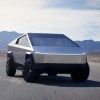
How Much Does It Cost to Charge an Electric Car at Target?
Purchasing and maintenance costs decrease as technology advances, which has initiated the popularity of EVs over the past few years as they become more affordable. Additionally, support for clean transportation has boosted the availability of charging stations and encourage EV adoption.
You may wonder if all-electric vehicles can use the same type of electric vehicle charger since nearly every automaker now produces EVs. There are universal electric vehicle chargers available. All-electric vehicles use the same standard connector for Level 1 and Level 2 charging, which are the two most common EV chargers. Although less common, DC fast chargers can be found in abundance in most major cities. The Tesla Supercharger is another option, though it is not available everywhere.
Charging an electric car at Target is now affordable and convenient

The cost of charging an EV at Target varies depending on the type of EV and charger used. The most common type of fast charging station is a DC Fast Charger, which can charge an EV’s battery in under 30 minutes. According to Jerry, the first two hours of charging time at a Level 2 (6.6 kW) ChargePoint for your vehicle are free, after which a $2 hourly fee is applicable.
There are multiple factors that affect the cost of charging an EV—it’s crucial to consider your location, utilities, insurance plan, and of course, your specific automobile. Taking the 2020 Tesla Model 3 as an example, your EV’s performance is gauged in kWh per 100 miles rather than miles per gallon.
Although electricity is less expensive than gasoline, the subject is somewhat complex. Compared to the price of gas, the cost of electricity varies significantly throughout the day, as outlined by Edmunds. Electricity prices are frequently lower at night and higher during the day. The good news is that particularly when compared to gas, energy costs typically remain stable over time. Furthermore, prices will differ depending on the power source.
Target’s charging station prices are better compared to other charging stations
Sam’s Club charges various rates to charge electric vehicles based on the location and provider. With an Electrify America account, users of the 90-kW plugs pay about $4 per month plus roughly 12 cents per minute. Those that use 350-kW rapid charging spend twice as much per minute of charging. In addition, non-members of Electrify America pay 16 cents for non-fast-charging plugs and 32 cents for fast-charging outlets every minute.
Walmart charges more for electric vehicle charging than Target. If you use an Electrify America charging station, set aside 12 cents per minute for the 90-kW plugs. Similarly, if you choose the 350 kW plug, you will be charged 24 cents per minute. To save money, you can pay directly through the app or enroll in the Electrify America’s Pass+ option. Pass holders and visitors must pay 43 cents per kWh. If you sign up for Pass+, which costs $4 per month, you only pay 31 cents per kWh.
Non-members at some Costco locations are asked to pay a $20 deposit, which will be returned after the transaction is finished. Another Costco with EV charging stations levies a 30-cent tax in addition to 10 cents per kWh.
You can find Target’s charging stations using some dependable apps
It might be difficult to locate an EV charging station. Fortunately, a ton of helpful applications can guide you wherever you are going while still having a full charge, such as the PlugShare app. You can easily find out if your local Target store offers an EV charging station by searching the Target location in the app you desire to use.


